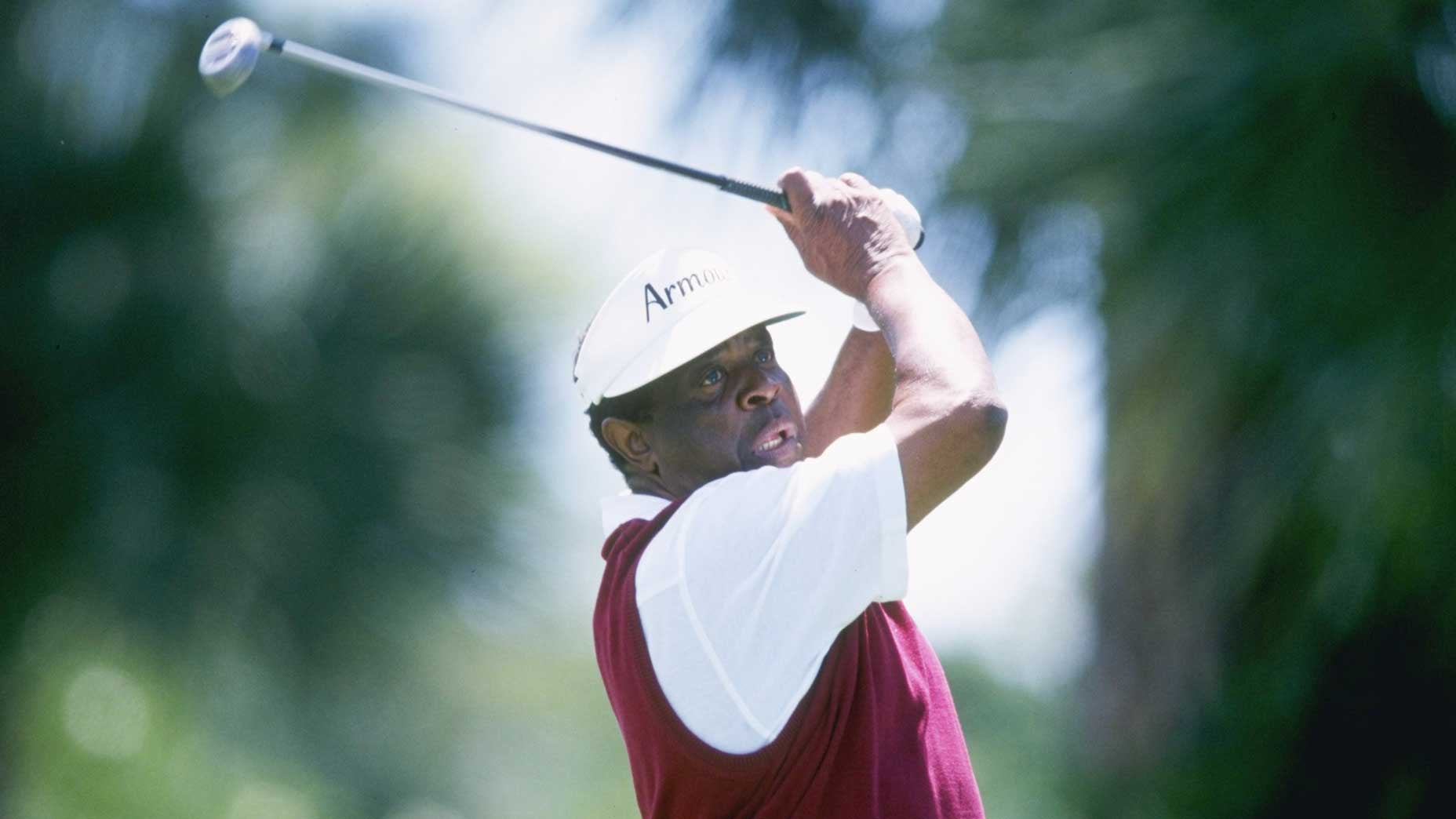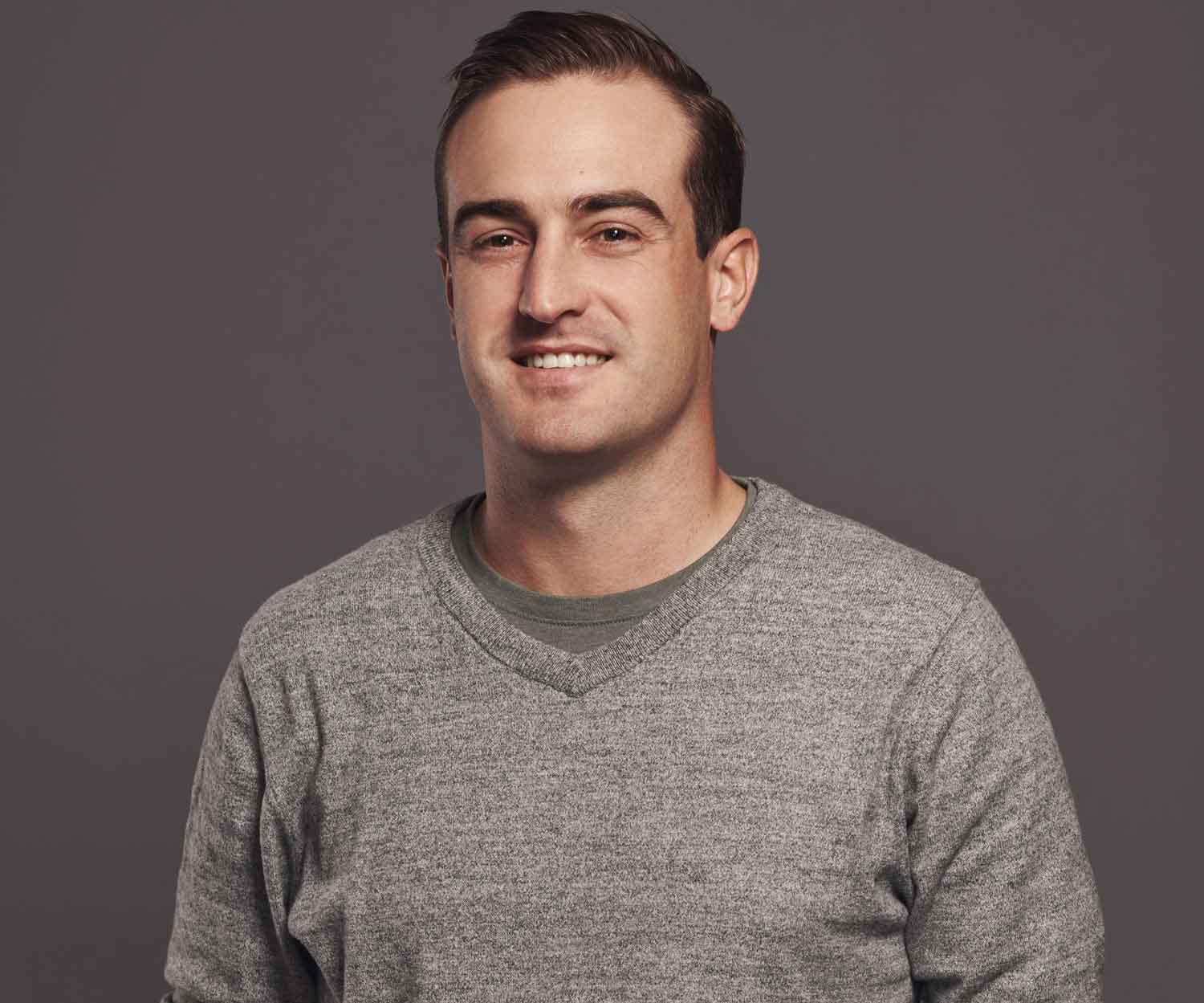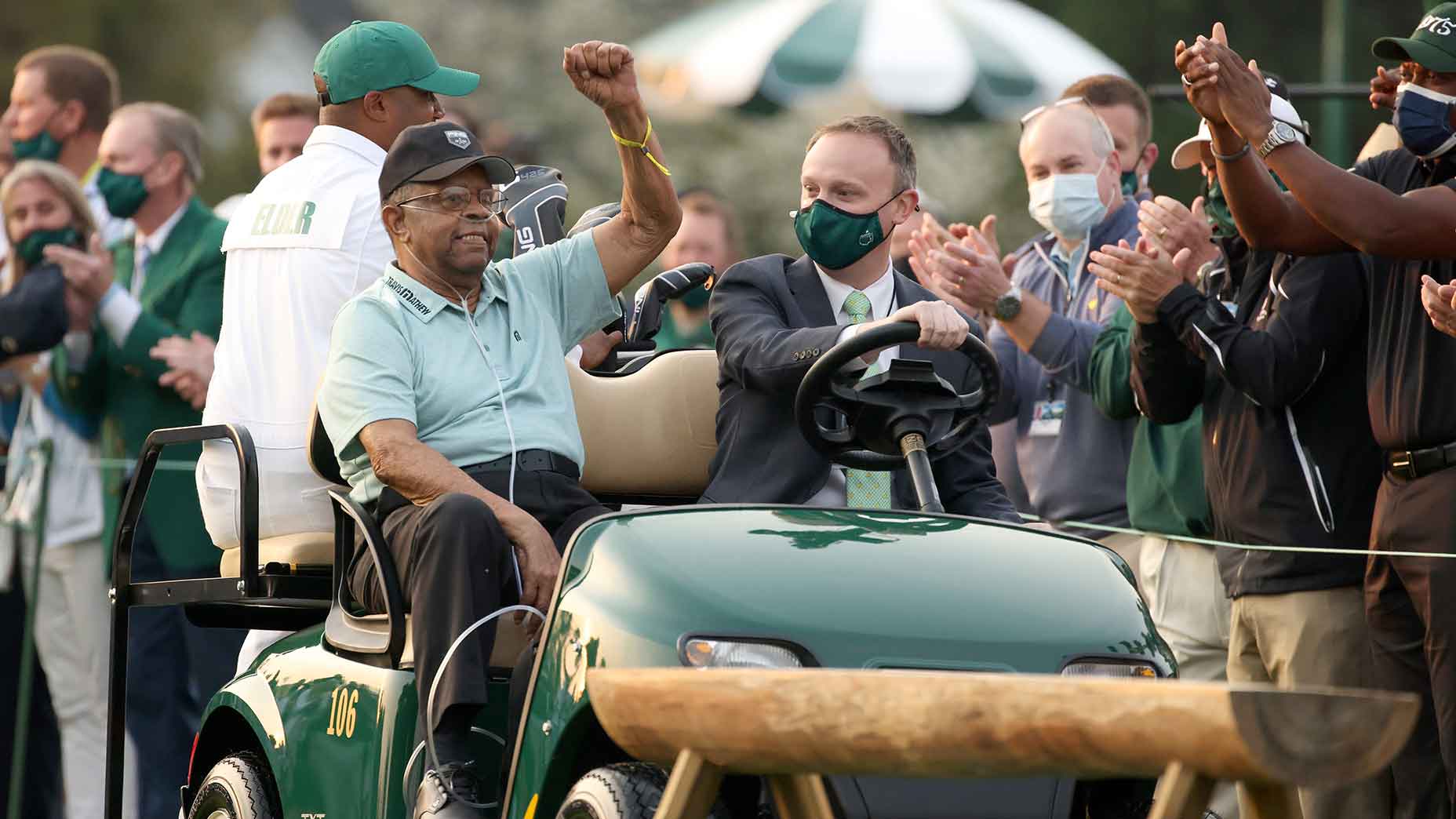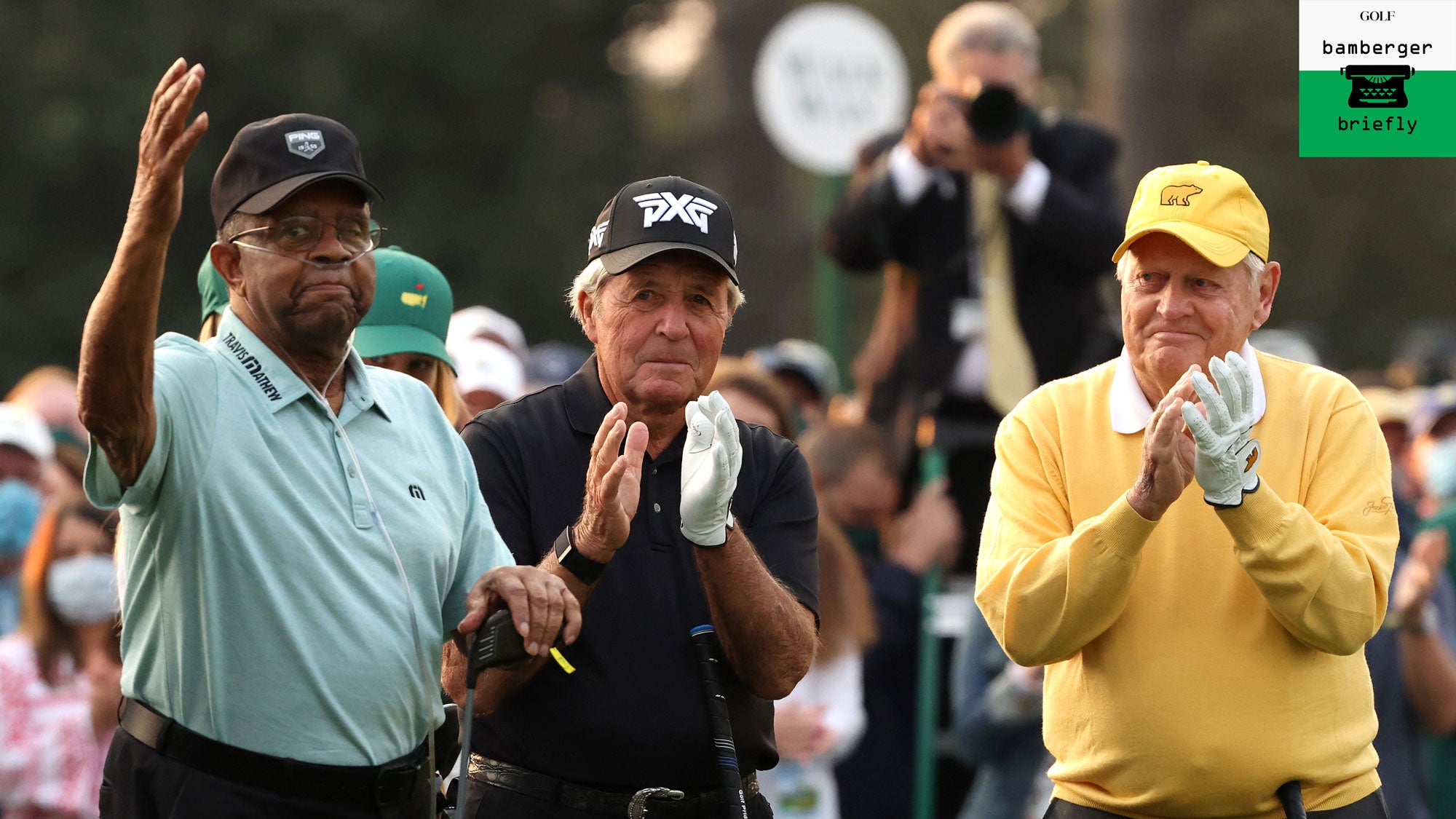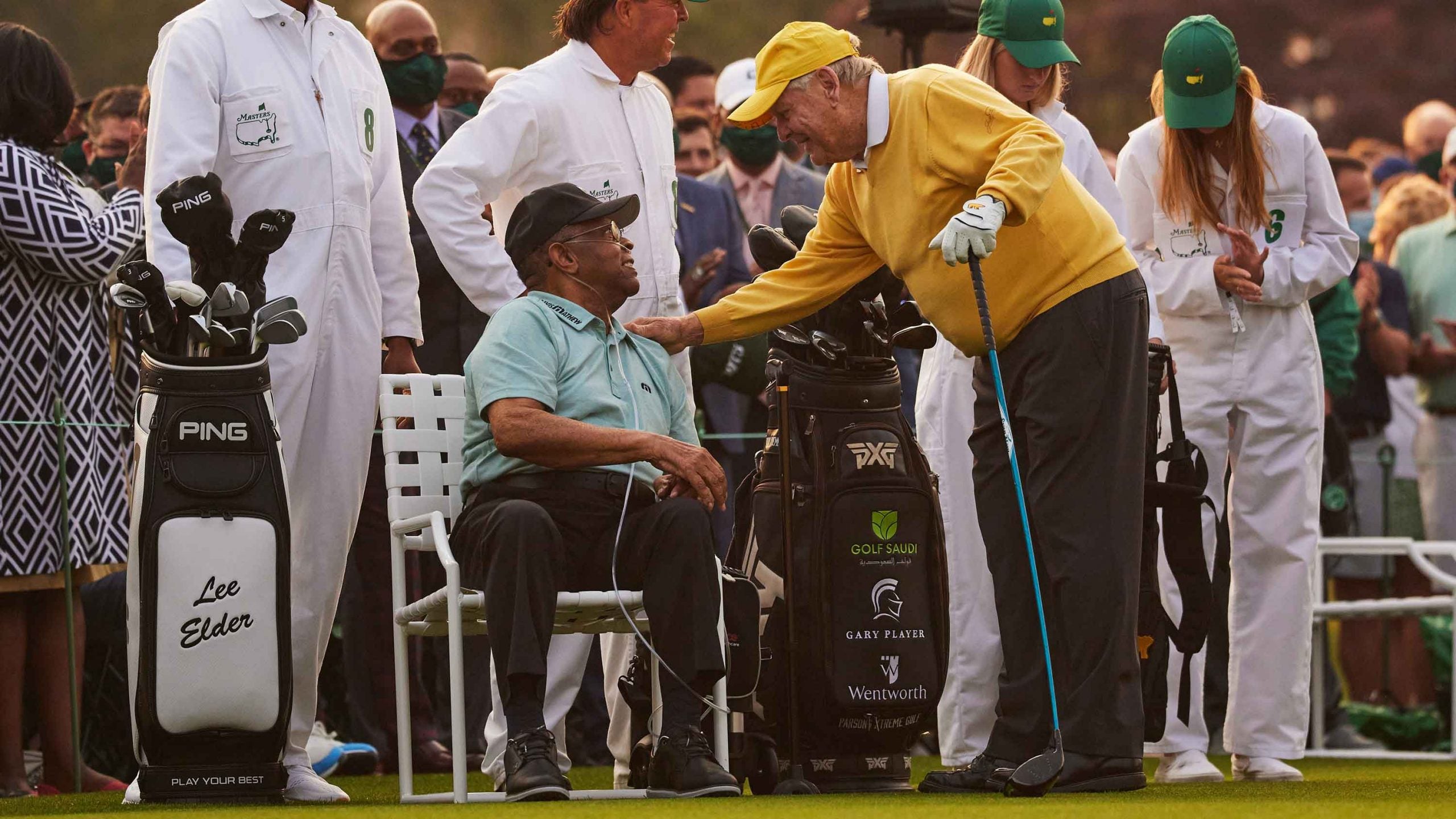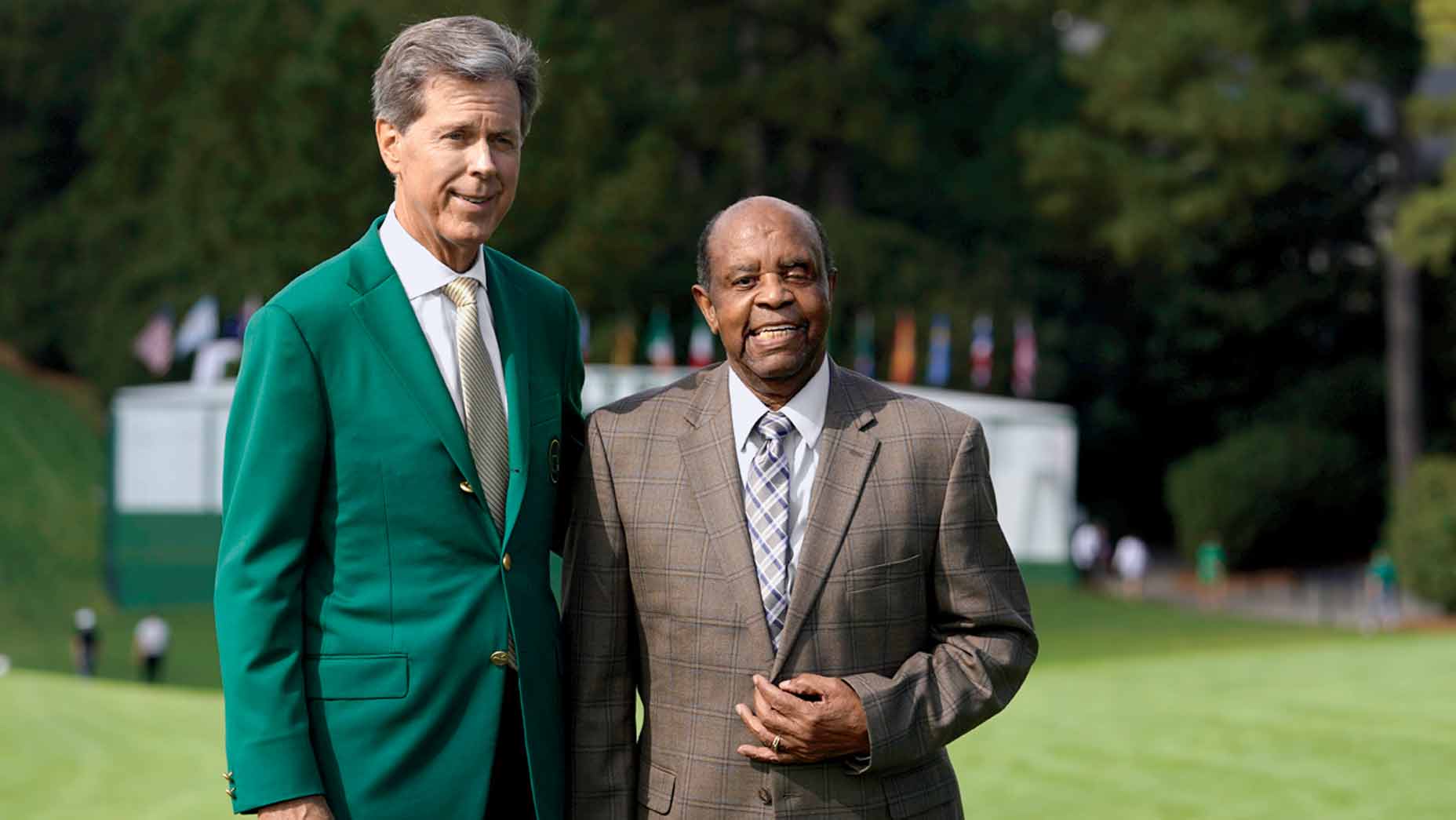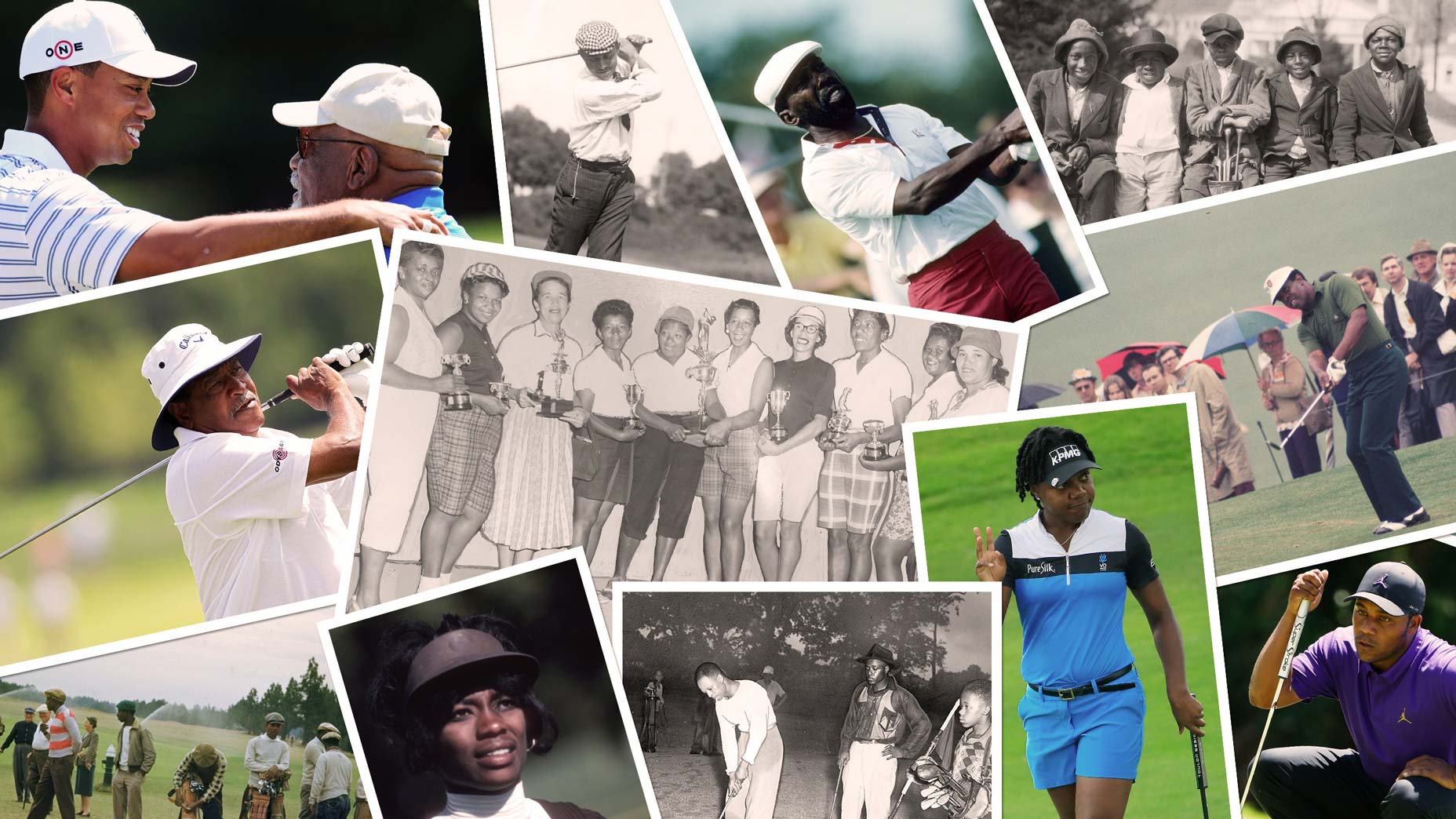Lee Elder, the first Black golfer to compete in the Masters Tournament, has died at 87.
Elder was one of the best Black golfers in the history of the game, and a trailblazer in a sport that discriminated against Black golfers for decades. He broke the color barrier at the Masters in 1975, at age 40, an achievement that was honored in full earlier this year during the 2021 ceremonial tee shots.
“What I remember so much about my first visit here was the fact that every tee and every green that I walked on, I got tremendous ovations,” Elder said this April. “I think when you receive something like that, it helps to settle down, because I’ll tell you, I was so nervous as we began play that it took me a few holes to kind of calm down.”
Elder was an orphan who got his start in the game as a caddie, and eventually led a 17-year career on the PGA Tour. He was a four-time Tour champion, with wins in 1974, 1976 and 1978. He competed in the Masters six times, finishing as high as 17th in 1979. Elder also finished T11 in both the U.S. Open and the PGA Championship.
His impact on the game continues to this day in a much bigger way than his performances.
Fighting for equality throughout his career, Elder’s name is now attached to multiple scholarships and endowment funds to help advance minorities in golf. Just last week, the USGA and The Country Club (site of this year’s U.S. Open) announced the Lee Elder Internship, to help introduce under-represented youth to the golf industry. Earlier this year, Augusta National created two scholarships — one for men, one for women — in Elder’s name at Paine College in Augusta. “It gives me great pride to know that my first Masters appearance continues to make a positive impact on others,” Elder said at the time.
When asked by Washington Post Magazine for his idol, Elder chose Major League Baseball’s Jackie Robinson, for much the same reasons that Tiger Woods and other Black golfers have listed Elder as one of their idols.
When Woods became the first Black golfer to win the Masters in 1997, Elder famously raced to Augusta National — earning a speeding ticket along the way — but arrived in time to watch Woods tee off in front of a standing ovation from the Black waitstaff that had congregated on the clubhouse balcony. Elder had tears in his eyes. It was a familiar scene.
“I was shedding a tear for Tiger,” Elder told GOLF.com in 2017. “They did the same thing for me after my first round. Every Black who was working at Augusta lined up along the entry to the clubhouse. They clapped and thanked me for coming. If Tiger felt anything like I felt, it had to be so gratifying.”
Elder was back on the 1st tee at the Masters earlier this year when Augusta National named him an honorary starter alongside Jack Nicklaus and Gary Player. Elder’s health kept him from hitting a tee shot, but his presence was immense. He smiled, raised a thumbs-up to the crowd and basked in the memory of his achievement 46 years after the fact.
“I certainly want to say thank you so very much for this great opportunity,” Elder said. “For me and my family, I think it was one of the most emotional experiences that I have ever witnessed or been involved in.”
